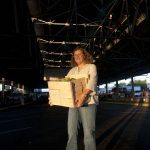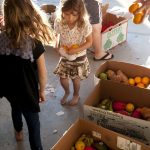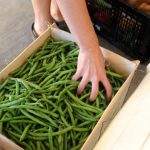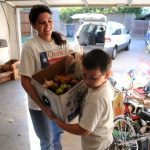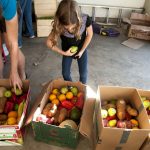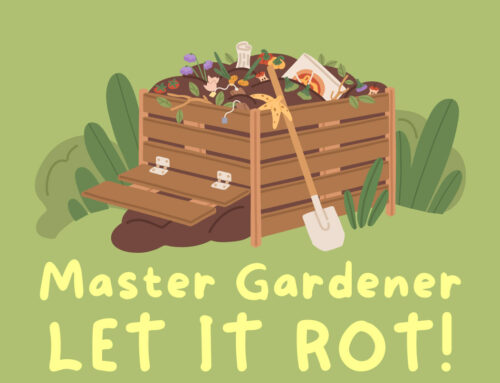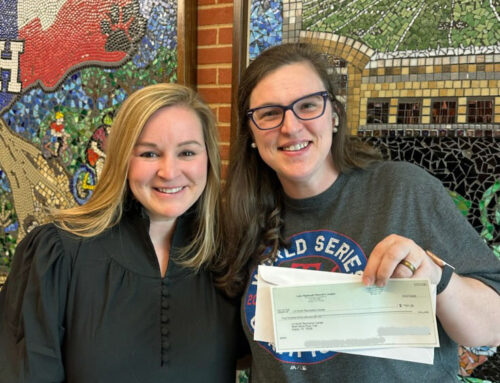These two groups have grown a grocery shopping trend
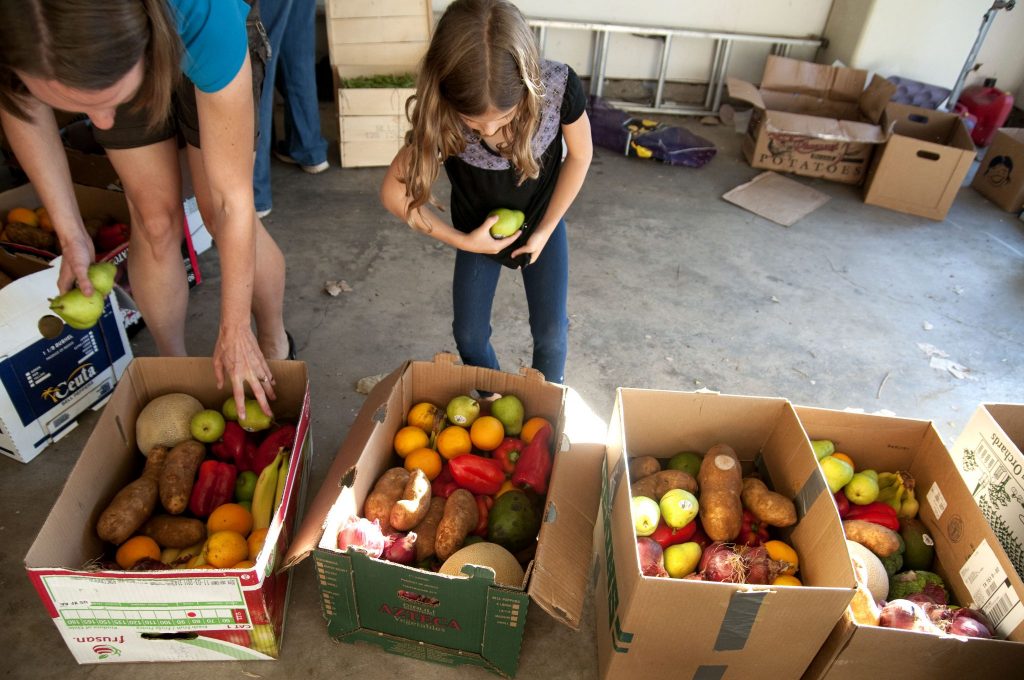
Boxes of produce take over a neighborhood garage on a recent Saturday morning. Photos by Jeff McWhorter.
It looks just like a normal house. But on this Saturday morning, several people have knocked on the door, entered and emerged minutes later with an overflowing box of lettuce, tomatoes, potatoes, peaches, kiwis, plums and — is that eggplant?
What might be a puzzling scene to the casual observer is just a typical Saturday morning pick-up for members of two neighborhood produce co-ops. Both groups operate on the same formula: the member with shopping duties, which rotate according to a schedule, buys cases of fruits and veggies at the Downtown produce warehouses on the outskirts of the Dallas Farmers Market. The goods are then brought back to the neighborhood and divvied up into boxes for the other members to pick up.
Cindy McWhorter started one of these groups more than 23 years ago with families mostly in her neighborhood, White Rock Valley. Hundreds of boxes of produce later, she is still a member of the bi-weekly co-op of 12 families that now represent neighborhoods across Lake Highlands. McWhorter says a few things have changed over the years, from different members to the price that the group charges, which is now $20 per box.
Click thumbnails to enlarge:
- Melissa Weiss counts money from the operation.
- Founder Cindy McWhorter at Dallas Farmer’s Market
- Virginia and Helen Waterman, 7 and 4, aren’t too young.
- Melissa sorts produce for co-op members’ orders.
- Beans from a farmers market.
- Deborah and Richard Waterman move boxes of produce inside.
- Melissa Weiss and Virginia Waterman sort produce.
- Virginia and Helen help their dad, Robert Waterman.
“Email has just made the process so much easier,” she says, recollecting earlier years when coordination among the group was arranged via phone.
A box of produce can weigh upwards of 30 pounds, but fluctuates with the shopper’s selections. (Sweet potatoes weigh considerably more than blueberries, for example.)
Another Lake Highlands produce co-op with 18 members has held weekly pickups for the past 17 years. Each box costs about $13 and contains four to five fruits and four to five vegetables. Kelli Campbell, an original member, recalls that the group initially had significant overlap with a babysitting co-op.
“When we started out, a lot of us had babies, so we made our own baby food [from the produce],” she says.
McWhorter and Campbell agree the benefits from a produce co-op are clear, starting with the cost. Both groups buy in bulk directly from warehouses, such as Paradise Produce, not from sheds where produce vendors have already divided produce into smaller amounts. Other factors are freshness and the subtle pressure to eat healthier from that co-op head of lettuce already sitting in the fridge. The produce is not necessarily organic or from local farms, although fruits and vegetables fitting both these criteria are available from other vendors inside the farmers market, though not always in bulk.
Of course, members must embrace the palate of the scheduled shopper.
“You get to know what certain people like. One of the things we always buy when it’s our turn to shop is cabbage,” McWhorter says. “One family, the Fulmers, doesn’t like cabbage.”
In good-humored co-op fun, McWhorter and her husband, Tom, once built a scarecrow from leftover cabbage in the Fulmers’ front yard.
McWhorter says that other produce co-ops must exist in her neighborhood, as she has spotted fruit-brimming boxes awaiting pickup on neighbors’ porches. With enough produce co-ops in Lake Highlands, perhaps we won’t need that boutique grocery store in the Town Center after all.


